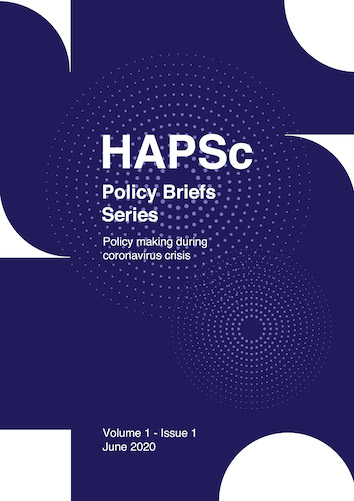COVID-19 and Leisure: Directions for Policy Makers
Abstract
Article Details
- Zitationsvorschlag
-
Kantartzi, I. M., & Karlis, G. (2020). COVID-19 and Leisure: Directions for Policy Makers. HAPSc Policy Briefs Series, 1(1), 115–122. https://doi.org/10.12681/hapscpbs.24956
- Rubrik
- Articles

Dieses Werk steht unter der Lizenz Creative Commons Namensnennung 4.0 International. Authors retain copyright and grant the journal right of first publication with the work simultaneously licensed under a Creative Commons Attribution License that allows others to share the work with an acknowledgement of the work's authorship and initial publication in this journal.




